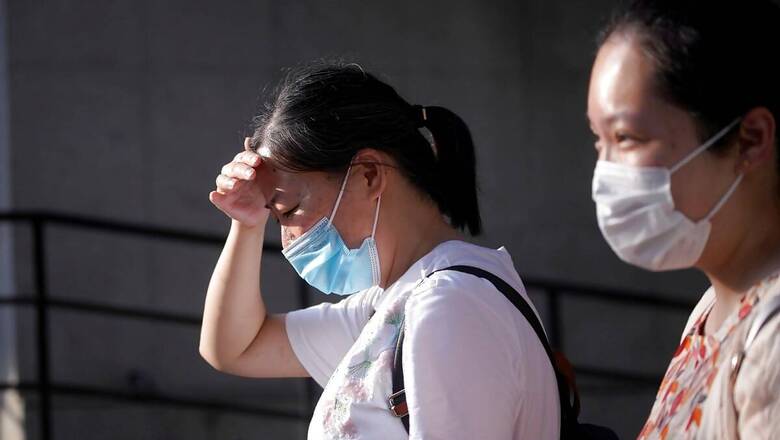
views
Over 30 million people have been affected by COVID-19 in the world so far. Out of these more than 22 million have already recovered, while over 950,000 have succumbed to the disease. From what is known so far, the infection spreads through oral and nasal routes when an infected person sneezes, coughs, talks or even sings.
After coming in contact with the virus, a person takes anywhere between 2-14 days (a mean of 4-5 days) to develop symptoms. The disease can be mild, moderate or severe. However, scientists are still trying to find out for exactly how long an infected person can spread the disease. High viral load has been found in patients in the first week of illness and viral shedding is noted in feces up to a month or more. Though no case of fecal-oral transmission has been seen so far, it has been suggested as a possible transmission route.
How long a COVID-19 patient can spread the virus
In May, a joint paper released by the National Center for Infectious Disease (NCID) and the Chapter of Infectious Disease Physicians, Academy of Medicine, Singapore had indicated that a person becomes infectious at least two days before they start to show symptoms of COVID-19. Other studies have suggested a range of 1-3 days.
The viral load has been found to gradually reduce over the first week after symptom onset. In mild to moderate cases, a person may spread the disease from 7-10 days of showing symptoms. After the second week of the illness, the virus may not be viable enough to cause infection in a healthy person. However, in severe cases, viable virus has been found in a patient’s body for 10-20 days since symptom onset.
The highest chance of transmission is suggested to be around the time of onset of symptoms and up to five days after. A large scale contact tracing study found that those who came in contact with a COVID-19 positive person after 6 days of disease onset did not get the disease.
Discharge criteria
As per the guidelines by the Ministry of Health, India, the following is the discharge criteria for coronavirus patients:
1. Those with mild disease at the COVID care centers are to be discharged after ten days of symptom onset, provided they do not show any fever for three consecutive days. The patient is asked to self-isolate for at least a week at home and will be called in by the healthcare facility on day 14 to check for any persistent symptoms. An RT-PCR is not necessary before discharge.
2. Those with moderate symptoms are admitted to dedicated COVID care centers with oxygen supply. If the patient’s fever resolves within three days and they have 95% oxygen saturation levels for four consecutive days, they will be discharged on day ten of symptom onset, provided they do not need antipyretics (medicines to reduce fever), do not have shortness of breath and do not need oxygen. The patient would be asked to stay in isolation at home for a week after discharge.
However, if the fever persists after three days and the patient still needs oxygen, they will be discharged only after their symptoms resolve and if their body maintains oxygen saturation for three consecutive days.
3. Patients with severe COVID-19 are only discharged after symptom resolution and a negative RT-PCR test report.
For more information, read our article on Viral shedding.
Health articles on News18 are written by myUpchar.com, India’s first and biggest resource for verified medical information. At myUpchar, researchers and journalists work with doctors to bring you information on all things health.

















Comments
0 comment